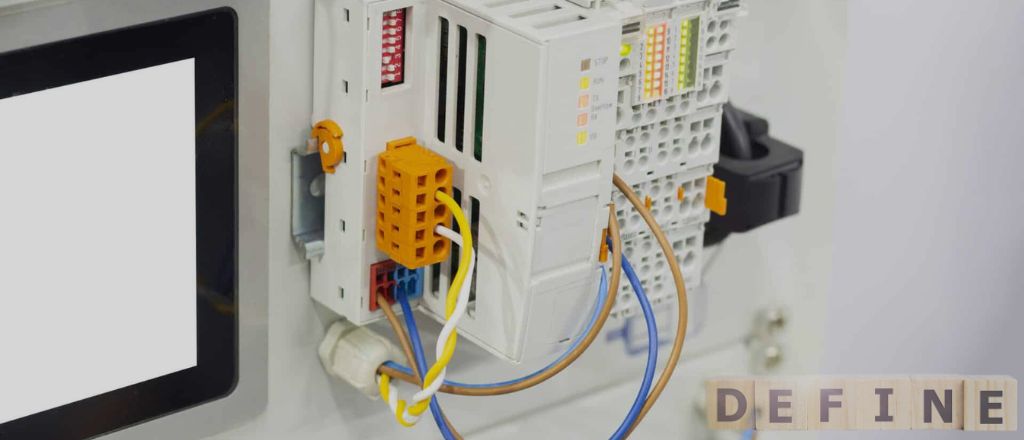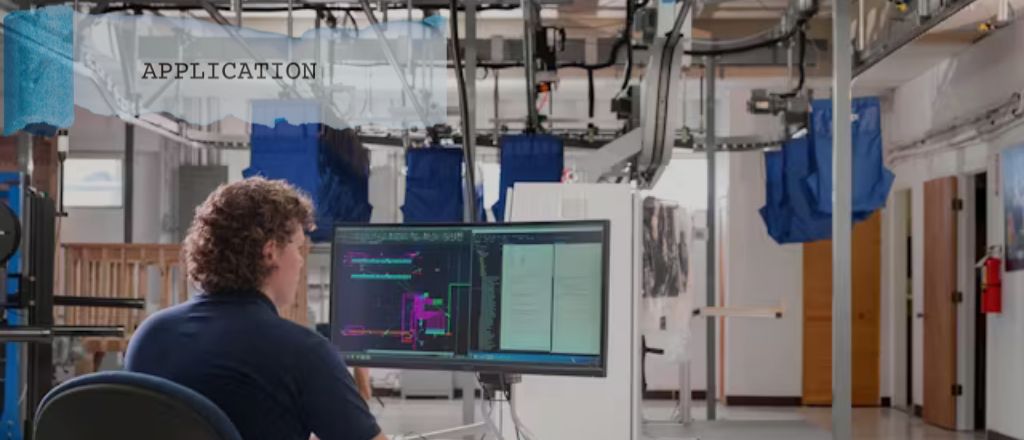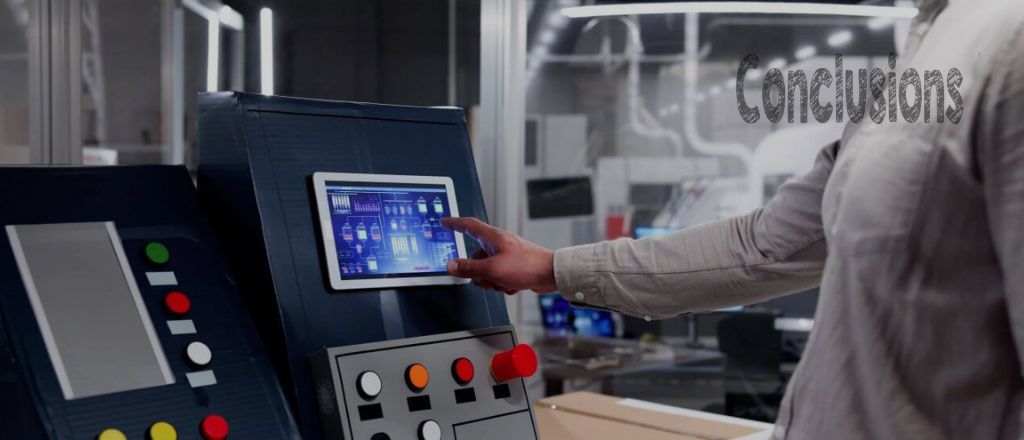A PLC (Programmable Logic Controller) is a specialized computer used to automate electromechanical processes, such as control systems in manufacturing and industrial environments.
What is a PLC Computer - Defining the Industrial Controller

A Programmable Logic Controller (PLC) computer is a specialized industrial computer designed to manage and control complex manufacturing processes. Unlike general-purpose computers, PLC computers handle real-time automation tasks and function effectively in harsh environments. They use rugged hardware and simplified programming to perform precise operations in manufacturing, oil and gas, automotive, and more.
PLC Computers vs. Regular Computers
Interviewer: "Trevor Blevins, thank you for joining us today. Can you explain how PLC computers differ from regular computers?"
Trevor Blevins: "Thank you for having me. Absolutely. Regular computers handle general-purpose tasks, including running office software, browsing the internet, or gaming. Standard operating systems like Windows fail to meet the demands of industrial environments.
"On the other hand, PLC computers are purpose-built for industrial automation. They are rugged to withstand extreme temperatures, dust, and vibrations. Their programming focuses on reliability and real-time performance, ensuring operations run smoothly under challenging conditions."
Interviewer: "That's fascinating. Can you give an example of how these differences impact industrial applications?"
Trevor Blevins: "Of course, I can explain that further. Imagine a factory floor. The vibrations from heavy machinery could easily disrupt a regular computer. A PLC computer, however, is designed to operate seamlessly in such conditions, ensuring no interruptions in production."
Interviewer: "Are there specific operating systems used in PLCs that make them stand out?"
Trevor Blevins: " Yes, indeed. PLCs frequently utilize real-time operating systems (RTOS) or embedded systems, streamlining operations to deliver quick, deterministic responses. Unlike the multitasking nature of regular OS, RTOS prioritizes tasks that require immediate execution, making it perfect for critical industrial processes."
How PLC Computers Operate in Industrial Control Systems
Interviewer: "Trevor, how do PLC computers operate within an industrial control system?"
Trevor Blevins: "Great question. PLC computers follow a cycle called the 'scan cycle.' First, they read inputs from devices like sensors or switches. Then, they process this data using programmed logic. Finally, they update outputs, which could include actuators or motors. This process happens continuously, ensuring real-time responsiveness."
Interviewer: "Can you provide an example?"
Trevor Blevins: "Take a conveyor belt system. Sensors might detect a package's position, and the PLC will use this information to trigger actions like stopping the belt or sorting the package to a different line. This precision ensures efficiency and accuracy in operations."
Interviewer: "How do PLCs maintain their reliability despite handling such critical tasks?"
Trevor Blevins: "PLCs use redundant components and fail-safe mechanisms to ensure reliability. For example, if a critical sensor fails, the PLC can trigger an emergency shutdown or switch to a backup system, preventing major disruptions."
Applications of PLC Computers

PLC Computers in Automation and Control
Interviewer: "Trevor, can you talk about some key applications of PLC computers?"
Trevor Blevins: "Absolutely. PLCs are indispensable in automation and control systems. In manufacturing, they streamline assembly lines by coordinating machinery and ensuring synchronized operations. For example, in car production, PLCs manage robotic arms for welding, painting, and assembly."
Interviewer: "What about industries outside of manufacturing?"
Trevor Blevins: "Good point. In the energy sector, PLCs control turbines, generators, and distribution systems optimizing performance and ensuring stability. In transportation, they manage signals and escalators; in water treatment, they regulate pumps and filtration systems. The applications are virtually limitless."
Interviewer: "How do PLCs integrate with other technologies?"
Trevor Blevins: "PLCs often work hand-in-hand with SCADA systems, Human-Machine Interfaces (HMIs), and Industrial Internet of Things (IIoT) devices. These integrations allow operators to monitor and control processes remotely, enhancing efficiency and decision-making."
The Benefits of Using PLC Computers in Industry
Interviewer: "Trevor, what are the main benefits industries gain from using PLC computers?"
Trevor Blevins: "There are several. The first is reliability. Manufacturers design PLCs to handle tough conditions, ensuring they deliver consistent performance. Additionally, they scale efficiently to fit various system sizes. You can use them for small machines or large factory operations. Third, they're easy to program using ladder logic, simplifying configuration."
Interviewer: "What about cost efficiency?"
Trevor Blevins: "Exactly. Their longevity and low maintenance needs make them a cost-effective choice. They integrate easily with systems like Human-Machine Interfaces (HMIs) and SCADA systems, giving industries centralized control and monitoring."
Interviewer: "Can you highlight a less obvious benefit of PLCs?"
Trevor Blevins: "Certainly. One underrated advantage is their modularity. Many PLCs feature interchangeable modules for inputs, outputs, and communication protocols. These interchangeable modules allow you to upgrade or adapt the PLCs to new requirements without replacing the entire system, making the process cost-effective and sustainable."
Interviewer: "How do PLCs enhance safety in industrial environments?"
Trevor Blevins: "Safety is a key feature. PLCs include built-in diagnostics and error-checking protocols. They can detect malfunctions and take corrective actions, such as shutting down operations to prevent accidents. They also comply with safety standards like SIL (Safety Integrity Level) to ensure robust protection."
Conclusion

PLC computers are indispensable tools in modern industrial automation and control. Their specialized design, real-time capabilities, and adaptability make them ideal for optimizing efficiency and reliability in various applications. By leveraging the strengths of PLC technology, industries can achieve greater productivity, reduced downtime, and enhanced operational Safety. Understanding the role and benefits of PLC computers is key for businesses aiming to stay competitive in today's fast-paced, technology-driven environment.
Interviewer: "Trevor, any final thoughts for readers looking to implement PLC systems?"
Trevor Blevins: "Certainly. Identify the specific processes you want to optimize for businesses venturing into automation. Choose a PLC system that matches your current and future needs. Also, invest in training for your team, as a well-maintained and correctly programmed PLC can transform your operations. PLCs are a gateway to smarter, more efficient industries. Embrace the technology, and you'll see the results."
Frequently Asked Questions
An example of a PLC device is a programmable controller used to manage the operations of conveyor belts, robotic arms, or automated assembly lines in factories.
The main purpose of a PLC is to automate industrial processes by monitoring inputs and controlling outputs, ensuring efficient and reliable operation of machinery and systems.
A PLC is designed specifically for industrial control tasks and operates in harsh environments, while a PC is a general-purpose computer used for various tasks like office work, gaming, and multimedia.

